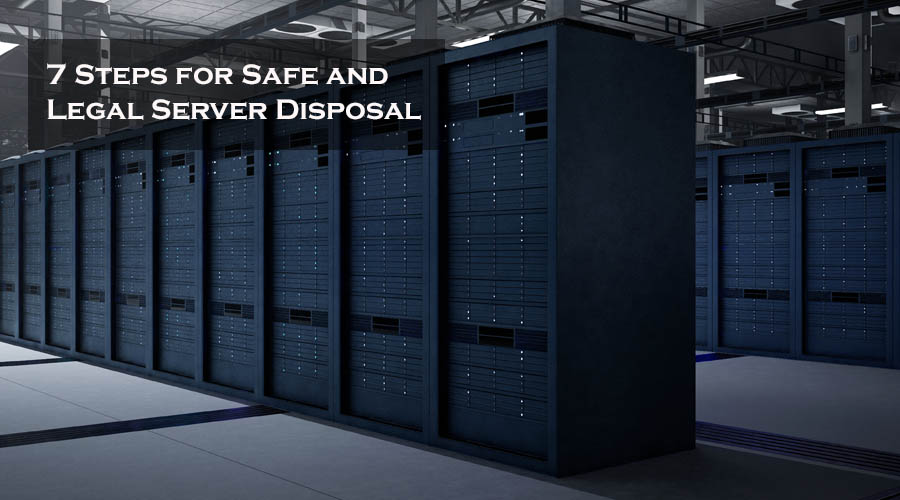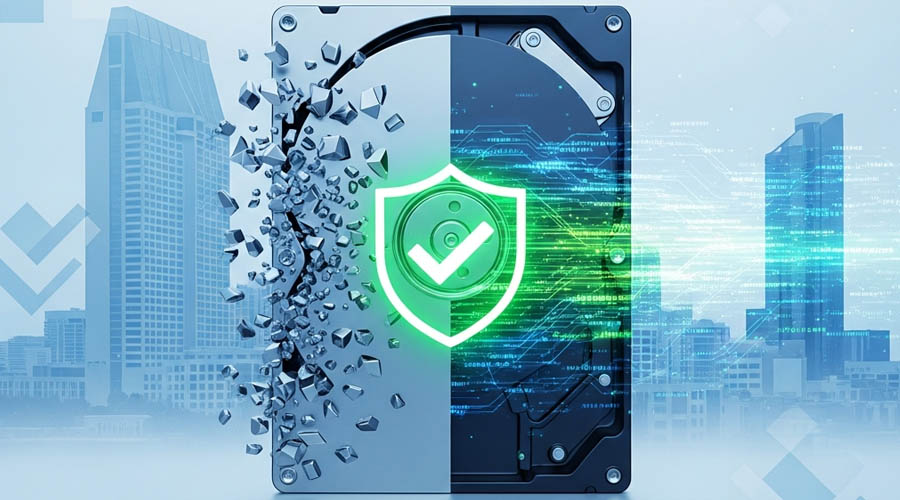Introduction: You Are Accountable for the Paperwork
For businesses in California (and especially in San Diego), IT asset disposition is a process that demands not just the physical removal of equipment, but flawless legal reporting. Without the correct documentation, you won’t be able to remove assets from the balance sheet, pass financial and environmental audits, and most importantly, prove compliance with data protection laws like CCPA.
Your recycling partner should not just be a carrier; they must be a provider of legal certainty. We will detail the three key documents a certified contractor must supply to ensure your company is completely protected.
Three Key Documents to Protect Your Business
For full legal protection, financial clarity, and compliance with California laws, your contractor is required to provide the following three documents:
1. Certificate of Data Destruction (CDD)
This is the most critical legal document in the disposal process. It officially removes liability for a data breach from your company. Without this certificate, your business cannot prove compliance with CCPA (California Consumer Privacy Act) requirements.
2. Asset Transfer Report (Act of Acceptance)
This document is vital for accounting and auditing purposes. It serves as legal proof that liability for IT assets has been officially transferred from your company to the recycling partner.
3. Downstream Recycling Report (Environmental Report)
This document proves that your company has fulfilled its obligations to the state of California regarding environmental protection. Receiving the Environmental Report demonstrates your commitment to corporate ESG standards, which is increasingly important for large companies in San Diego.
Specifics of IT Reporting for Audits in California
- Process Connection: Obtaining these documents is the final stage of the process. If you are looking for a partner who can legally retire large-scale equipment, see our server recycling services.
- PCs and Monitors: These rules apply beyond servers. When retiring old desktop computers and monitors, your company still needs the same high level of documentation and a CDD.
- Retention Period: The accounting department should retain the full documentation package (CDD, Transfer Reports, Environmental Reports) for a minimum of 5–7 years for purposes of potential financial or environmental audits.
Frequently Asked Questions (FAQ)
❓ Is deleting files or formatting the drive enough to avoid needing a CDD?
No, it is not. Any skilled technician can recover data after a simple format. Only a Certificate of Data Destruction (CDD), issued after physical destruction or wiping according to industry standards (e.g., NIST 800-88), holds legal validity.
❓ Can California tax authorities request these documents?
Yes. Tax and environmental authorities may request the Transfer Report and the Environmental Report to confirm proper asset write-off and compliance with e-waste laws. The CDD is critical during data privacy audits.
❓ What happens if the recycling partner goes out of business?
This is why choosing a certified partner is crucial. The Transfer Report shifts liability to the contractor. If the contractor is not certified, liability can revert to your company.
Conclusion: Ensure Legal Clarity
Only a complete and legally sound documentation package ensures that your business will not face issues during a financial audit, tax inspection, or data breach investigation.
Don’t risk legal certainty! We provide the full reporting package required for IT asset disposition under California law. Contact us for a documentation consultation!




